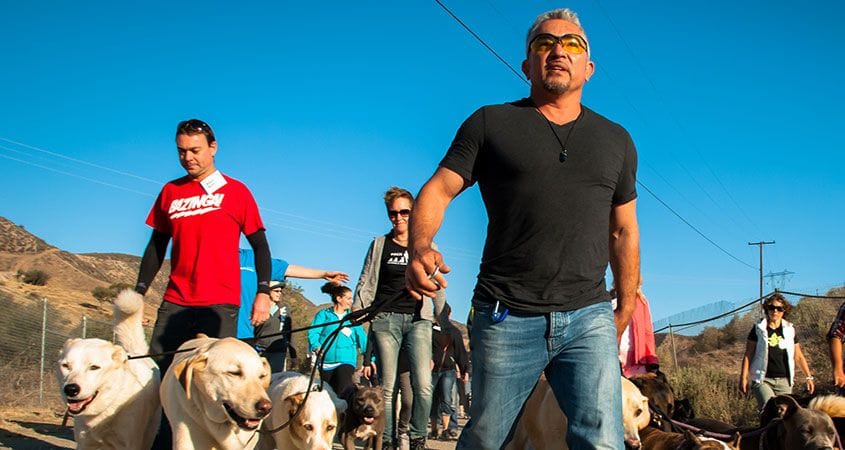By Cesar Millan
You’ve probably never heard of Joseph Meister, but chances are good that dogs would not be the most popular household pet without him. He was born in France in 1876 and died there, in Paris, in 1940.
He should have died in 1885, when he was nine years old. The reason he did not is one of the most important medical breakthroughs in modern history, and it’s why there are so many dogs as family pets around the world today.
History of the Rabies Vaccine
Joseph Meister should have died because he was mauled by a rabid dog, but he lived because he was the first human patient that Louis Pasteur tested a rabies vaccine on. The vaccine worked, the patient lived, and the human-canine relationship was changed forever.
For a few thousand years before that, there were really only two “treatments” for rabies. One was the murder or suicide of the person who had been bitten. The other was called Saint Hubert’s Key, which is exactly what it sounds like: a metal charm that was heated and pressed against a dog bite in hopes that it would prevent rabies. They also used to brand dogs with it, believing that it would keep them from developing rabies.
Needless to say, it didn’t work.
Before Pasteur, 95% of all rabies cases in humans were caused by dogs, and the disease was fatal. In modern times, cases of humans catching rabies from dogs in countries with mandatory vaccination are almost unknown, and people who start treatment after being bitten by a possibly rabid animal generally survive.
In case you’re wondering, the wild animals to most avoid if you don’t want to catch rabies are bats, raccoons, foxes, and skunks.
Once vaccination of dogs for rabies became mandatory, the incidence of humans catching the disease from canines plummeted, and this literally opened the door for dogs to be able to move into our homes.
Protecting Our Dogs as Pack Leaders
What this story demonstrates, though, is one of the two things we must provide for our dogs as their Pack Leaders. One is direction. The other is protection — and the best way to protect our dogs from things that can kill them but which we can’t see is to have them vaccinated according to our vet’s recommendations.
Where mandatory vaccination programs have been carried out, canine rabies has been eliminated. According to the CDC, there have been no dog-specific strains of rabies reported in the U.S. since 2004, and in Europe, 21 countries have been determined to be free of dog specific rabies. This is because dogs have developed what is called “herd immunity,” and it comes directly from vaccinating as many of them as possible.
This doesn’t mean that the disease is gone, though. Dogs can still be infected by a rabid animal, including the list above. The eastern U.S. has had an epidemic of infected raccoons since the 1970s, and there’s now some indication that people (and possibly dogs) can catch rabies just from being in a vicinity frequented by bats.
So, while canine rabies has been eliminated in the U.S. and many other countries around the world have been determined to be free of it as well, the disease is still out there, and your dog can catch it from an infected animal of a different species.
This is why it’s so important to make sure that our dogs are vaccinated. Until rabies of all kinds have been completely eliminated, the danger will still be there. We’ve done a remarkable job in just over a century, but the disease is at least four thousand years old, and viruses are experts at adapting for survival. To ensure our dogs’ survival, we need to provide them all the protection that we can.
Stay calm, and vaccinate!
Sunday, September 28, is World Rabies Day.











